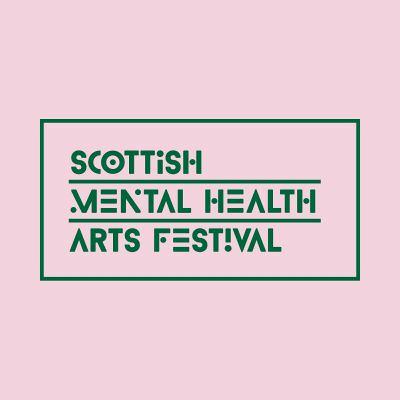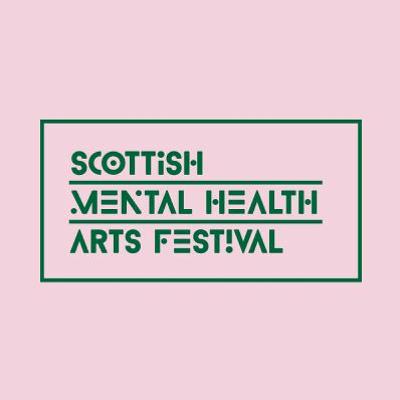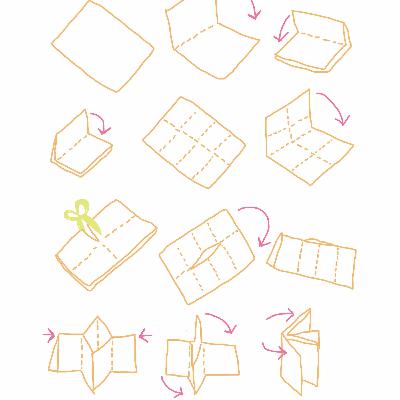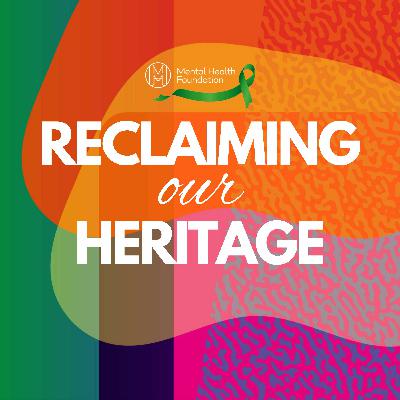Discover SMHAF Podcast
SMHAF Podcast

SMHAF Podcast
Author: Scottish Mental Health Arts Festival
Subscribed: 33Played: 114Subscribe
Share
© All rights reserved
Description
Mental Health Arts is a year-round arts programme led by the Mental Health Foundation Scotland, built around the annual Scottish Mental Health Arts Festival (SMHAF). Established in 2007, the festival is one of the largest of its kind in the world and among Scotland's most diverse cultural events, covering everything from music, film and visual art to theatre, dance, and literature.
106 Episodes
Reverse
Reflecting light and stillness, and the process of creativity and the essential part this can play in all of our wellbeing. Some Revolutions are ongoing, peaceful, and very quiet.
This track is by Talking Heads volunteer Paul Duncan, composed in response to the exhibition Photography Revolution by Dundee-based mental health charity Wellbeing Works.
Paul is a classically trained musician who is currently based in Perth and who composes music both as an outlet for his creativity and also for the therapeutic value that it brings into his wellbeing. Short examples of his compositions are on his Soundcloud page https://on.soundcloud.com/n1Nh5.
Listen to this podcast by Talking Heads volunteer Kirsty Ann-Watters, featuring an interview with koi collective members Sally MacAlister, Grace Baker, Zara Louise Kennedy, and Evie Mortimer about their new play Hysterical!.
Commissioned by Live Borders for the Scottish Mental Health Arts Festival, Hysterical! is a free fall through a categorically inaccurate history of mad women, based on real women in real times.
As part of the Scottish Mental Health Arts Festival, the University of Glasgow hosted Rebirth and Revolution: the Life and Legacy of Mary Barnes to mark the artist and mental health campaigner’s centenary year.
At the launch of the exhibition, a panel of experts gave a series of talks to contextualise her journey in art and recovery, from its beginnings at R.D. Laing’s controversial therapeutic community at Kingsley Hall, and how her legacy continues to have an influence in the present day.
Listen to this podcast by Talking Heads volunteer Sarah Visser, which uses audio clips from the event to explore the long and winding road that is the history of mental healthcare and how Mary’s story can inspire the use of creativity to promote recovery.
The past few years have seen a huge increase in the number of artistic projects, from theatre and film to comedy, that explicitly address mental health. Often these projects involve the artists sharing their own traumatic experiences.
In our second Mental Health Arts Network gathering, recorded in March 2022, we explore how we use the arts to explore mental health while safeguarding the mental health of artists and audiences.
Our speakers are:
Tamsin Griffiths and Paul Whittaker of Four in Four. Based in Cardiff, Tamsin and Paul are cross-disciplinary artists with a Mental Health diagnosis, who create participatory interactive projects that blur the boundaries of art-forms and challenge perceptions about mental health.
Juliette Burton (pictured) is a comedian who has talked openly about her mental health experiences in her shows. She is an ambassador for the mental health charity Rethink Mental Illness, and has worked closely with Mind, Beat and Time To Change.
Rebecca Day is a psychotherapist, clinical supervisor, and founder of Film in Mind, which advocates for better mental health in the film industry and provides bespoke therapeutic services for the filmmaking community.
Vikki Doig recently moved on from a job as learning and engagement manager for Youth Theatre Arts Scotland, where she mentored young people, programmed mental health workshops and worked to support a culture of care across the youth theatre sector. She is currently a member of the Mental Health Arts Network working group.
Hosted by Andrew Eaton-Lewis, arts programme officer for the Mental Health Foundation.
Art-Making As Self-Expression - Jan-Bert by Scottish Mental Health Arts Festival
Circus Skills - Isabel by Scottish Mental Health Arts Festival
Clay - Anne by Scottish Mental Health Arts Festival
Short - Ruth D by Scottish Mental Health Arts Festival
Reclaiming Our Heritage is a Mental Health Foundation podcast inspired by its two-year oral history project supported by the National Lottery Heritage Fund. The project’s aim is to record and preserve the spoken testimonies of the mental health community between the 1950s and early 2000s.
Each episode will explore themes that have come out of these spoken testimonies, and these will be further discussed by a professional guest. The full interviews by these contributors and others are available in the Reclaiming Our Heritage archive.
In this episode, Halina Rifai speaks to guest David Cutler, Director at Baring Foundation, about how stigmas have evolved over the years with the help of testimonies from the Reclaiming Our Heritage archive.
The Reclaiming our Heritage project is funded by a number of donors including an “Our Heritage” grant from the National Lottery Heritage Fund.
This is Reclaiming Our Heritage, a Mental Health Foundation podcast inspired by its two-year oral history project supported by the National Lottery Heritage Fund. The project’s aim is to record and preserve the spoken testimonies of the mental health community between the 1950s and early 2000s. The full interviews by these contributors and others are available in the Reclaiming Our Heritage archive on the Scottish Mental Health Arts Festival website.
Each episode will explore themes that have come out of these spoken testimonies, and these will be further discussed by a professional guest.
In this episode, Halina Rifai speaks to guest Wendy Halliday, Director at See Me, about how stigmas have evolved over the years with the help of testimonies from the Reclaiming Our Heritage archive.
The Reclaiming our Heritage project is funded by a number of donors including an “Our Heritage” grant from the National Lottery Heritage Fund.
Content Note: Features discussion of suicidal ideation.
Reclaiming Our Heritage is a Mental Health Foundation podcast inspired by its two-year oral history project supported by the National Lottery Heritage Fund. The project’s aim is to record and preserve the spoken testimonies of the mental health community between the 1950s and early 2000s.
Each episode will explore themes that have come out of these spoken testimonies, and these will be further discussed by a professional guest. The full interviews by these contributors and others are available in the Reclaiming Our Heritage archive on the Scottish Mental Health Arts Festival website.
Each episode will explore themes that have come out of these spoken testimonies, and these will be further discussed by a professional guest.
In this episode, Halina Rifai speaks to guest Sean McCann, cognitive behavioural psychotherapist and lecturer, about mental health over the generations with the help of testimonies from Hugh, Dougie and Chris from the Reclaiming Our Heritage archive.
The Reclaiming our Heritage project is funded by a number of donors including an “Our Heritage” grant from the National Lottery Heritage Fund.
This is Reclaiming Our Heritage, a Mental Health Foundation podcast inspired by its two-year oral history project supported by the National Lottery Heritage Fund. The project’s aim is to record and preserve the spoken testimonies of the mental health community between the 1950s and early 2000s. The full interviews by these contributors and others are available in the Reclaiming Our Heritage archive on the Scottish Mental Health Arts Festival website.
Each episode will explore themes that have come out of these spoken testimonies, and these will be further discussed by a professional guest.
In this episode, Halina Rifai speaks to guest Andrea Spink, an art psychotherapist, about the impact of art on mental health with the help of testimonies from the Reclaiming Our Heritage archive.
The Reclaiming our Heritage project is funded by a number of donors including an “Our Heritage” grant from the National Lottery Heritage Fund.
Art can be a powerful way of addressing the difficult subject of suicide, but how can it be done without sensationalising, stigmatising or triggering? This is a recording of a discussion event that took place on 23 February 2022, hosted by the Mental Health Foundation as part of its new Mental Health Art Network programme, supported by the Baring Foundation. Taking part in the discussion were:
Mariem Omari, artistic director of Bijli Productions, whose show One Mississippi is a powerful piece of verbatim theatre based on interviews with men who have been driven to attempt suicide. One Mississippi is touring Scotland in May 2022 as part of SMHAF.
Rory O’Connor, Professor of Health Psychology at the University of Glasgow and author of the book When It Is Darkest, which explores why people take their own lives.
Bex Singleton, a film-maker whose short documentary I’ll Love You Till The End sensitively examines the experience of people bereaved when someone they love takes their own life.
Michael Duke, a playwright and theatre director who is currently developing a new project about the difficulty of understanding, through notes left behind, the worlds experienced by people who have died by suicide.
Hosted by Andrew Eaton-Lewis, arts programme officer for the Mental Health Foundation.
The event image is taken from the poster for One Mississippi by Bijli Productions.
If you have been bereaved or affected by suicide, you can contact Survivors of Bereavement by Suicide. Email email.support@uksobs.org or call the helpline, open 9am to 9pm Monday to Sunday, on 0300 111 5065.
Breathing Space is a free, confidential phone service, available to anyone in Scotland, providing listening, advice and information about mental health. You can speak to a Breathing Space advisor on 0800 83 85 87.
Samaritans volunteers are there to listen. The phone line is free to call and available 24 hours a day, 7 days a week. You can speak to a trained Samaritans volunteer on 116 123.
Content Warning: Features discussion of suicidal ideation
This is Reclaiming Our Heritage, a Mental Health Foundation podcast inspired by its two-year oral history project supported by the National Lottery Heritage Fund. The project’s aim is to record and preserve the spoken testimonies of the mental health community between the 1950s and early 2000s. The full interviews by these contributors and others are available in the Reclaiming Our Heritage archive on the Scottish Mental Health Arts Festival website.
Each episode will explore themes that have come out of these spoken testimonies, and these will be further discussed by a professional guest.
In this episode, Halina Rifai speaks to guest Emma Jayne Park, dancer, theatre maker, collaborator and micro-activist, about the question of what is innovation in mental health arts projects with the help of testimonies from the Reclaiming Our Heritage archive.
The Reclaiming our Heritage project is funded by a number of donors including an “Our Heritage” grant from the National Lottery Heritage Fund.
This is Reclaiming Our Heritage, a Mental Health Foundation podcast inspired by its two-year oral history project supported by the National Lottery Heritage Fund. The project’s aim is to record and preserve the spoken testimonies of the mental health community between the 1950s and early 2000s.
The full interviews by these contributors and others are available in the Reclaiming Our Heritage archive on the Scottish Mental Health Arts Festival website.
Each episode will explore themes that have come out of these spoken testimonies, and these will be further discussed by a professional guest.
In this episode, Halina Rifai speaks to guest Cheryl McGeachan, senior lecturer in Human Geography at the University of Glasgow, on the subject of how therapy has changed over the years with the help of testimonies from the Reclaiming Our Heritage archive.
The Reclaiming our Heritage project is funded by a number of donors including an “Our Heritage” grant from the National Lottery Heritage Fund.
Brian by Scottish Mental Health Arts Festival
Consumed is a ten minute audio work that explores the disorienting experience of eating disorder and the way in which negative, dangerous thoughts around food and the body are normalised in the media and in our society.
Blending satirical sketches, details of eating disorder symptoms and statistics, and semi-confessional spoken word fragments, this audio piece delves into the messiness and complexity of connections between control, eating and the body. As well as navigating the all-consuming nature of negative body image, Consumed addresses the capitalist consumerism that paradoxically encourages ‘not consuming’ – encouraging dieting and weight loss – in order to sell products and make profit.
Consumed was commissioned by the Scottish Mental Health Arts Festival as part of My Normality, a series of artist commissions conceived in response to the Covid-19 pandemic.
Isla Cowan is a Scottish playwright, performer and director, currently based in Edinburgh. She specialises in creating ecofeminist work and believes in theatre that challenges both its audience and its makers.
www.islacowan.com
Photographer and writer Nikki Kilburn is interested in exploring “how identity and lived experience creates complex realities”.
Nikki was commissioned as part of the Scottish Mental Health Arts Festival's My Normality project to create a collection of “five empowered portraits of women of colour with a lived experience of racialised trauma” accompanied by an audio narrative of their voices telling their stories, in order to show “how the lived experience of racialised trauma creates othering and stigma”.
Nikki Kilburn said: “It was really important for me to remain true to the identity and style of each woman in their portrait and spoken word narrative. We worked together to co-create how we would capture their visual representation and narrative. Each portrait was carefully created based on how each woman wanted to tell their story and my self-portrait transforms the dehumanising racism of white supremacy into an act of power. Whilst weaving the spoken narratives together I was mindful to stay true to each woman's individuality and elevate shared lived experience. The music, lyrics and my spoken word poem throughout the audio piece created a context for the stories to be knitted within. This process has been a beautiful, enriching healing experience for us all.”
My Normality is supported by Creative Scotland.
In this episode of Mind Matters, Michael McEwan speaks to writers Sasha Greene, the Scottish author of Something Like Happy which explores mental health, and Angela McCrimmon, author of Can You Hear Me Now?: Finding My Voice in a System that Stole It, about writing and mental health.
Michael McEwan speaks to Janine from the Well Happy Band and singer-songwriter Michelle Connolly in this podcast for the Scottish Mental Health Arts Festival 2021.














